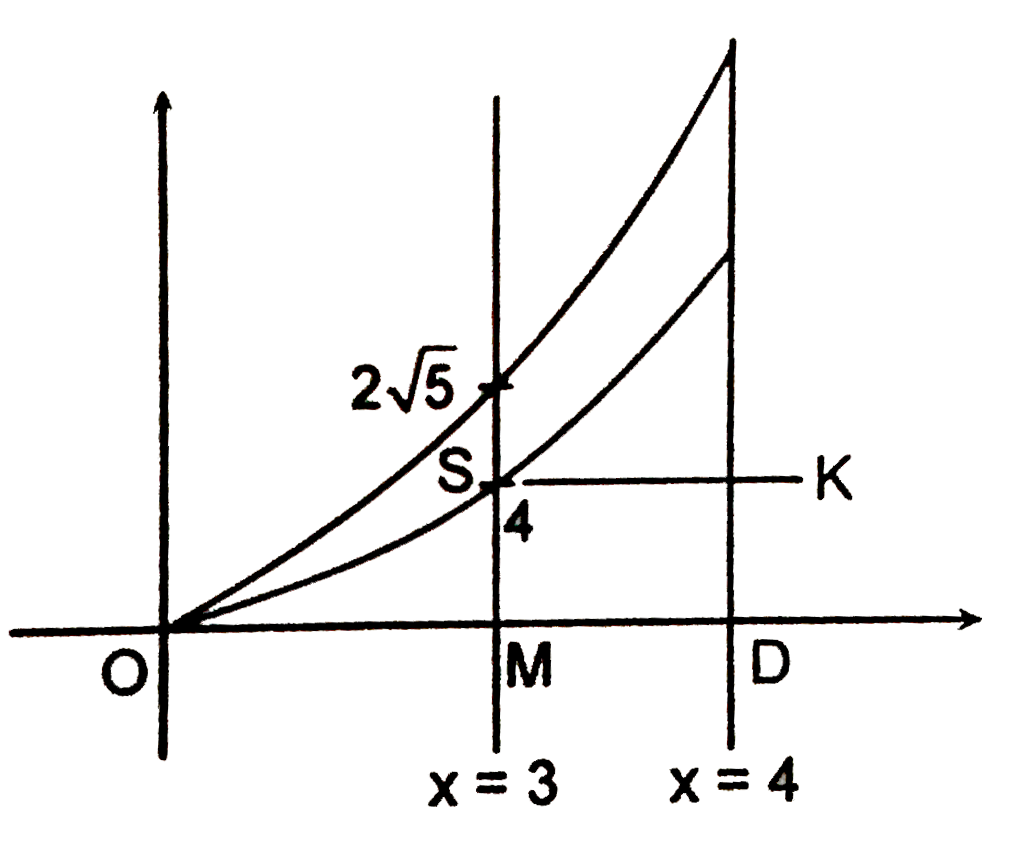Let f(x) be a differentiable and g(x) be a twice differentiable function such that |f(x)−1|≤1 and f′(x)=g(x). If f2(3)+g2(3)=20 then number of value(s) of cε(0,4) such that g(c)g''(c)>0 is/are _________
The correct Answer is:0
∵0≤f(x)≤2
and g(3)ε[−2√5,−4]∪[4,2√5
Also ∫40g(x)dx=∫40f′(x)dx(f(4)−f(0)∈(−2,2))
Case I: Let g(x)>0 and g''(x)>0
Clearly ∫40g(x)dx≤ Area (MDKS)=4
Which is a contradiction
Thus, there is no such C
Similarly case II: Let g(x)<0 and g''(x)<0

Topper's Solved these Questions
Similar Questions
Let f and g be two differentiable functions on R such that f'(x)>0andg'(x)<0, for all xϵR. Then for all x : (a) (f(x+1))>g(f(x−1)) (b) f(g(x))>f(g(x+1)) (c) g(f(x+1))<g(f(x−1)) (d)g(g(x+1))<g(g(x−1))<="" b="">
View SolutionLet f and g be two differential functions such that f(x)=g'(1)sinx+(g''(2)−1)x g(x)=x2−f′(π2)x+f''(−π2)
View Solution
Knowledge Check
Let f(x) be a twice differentiable function in (−∞,∞) such that f''(x)<0∀x∈R, g(x)=f(x)+f(1-x) and g'((1)/(4))=0 then
Ag(x) is increasing in (−∞,14)Bg(x) attains local minima at x=12Cminimum number of zeroes f g''(x) is 2 in [0, 1]Dg'(x)<0 in (12,∞)Let f be a twice differentiable function such that
f''(x)=−f(x) and f'(x)=g(x).If h'(x)=[f(x)]2+[g(x)]2,
h(a)=8 and h(0)=2, then h(2)=A1B2C3Dnone of theseLet f and g be twice differentiable functions such that fog(x) = x3 and g(1)=2,g'(1)=1,g''(1)=4 then f''(2) is equal to
A0B2C4D−6
f(x) and g(x) are two differentiable functions in [0,2] such that f(x)=g(x)=0,f'(1)=2,g'(1)=4,f(2)=3,g(2)=9 then f(x)−g(x) at x=32 is
View SolutionLet f:(−1,1)→R be a differentiable function with f(0)=−1 and f'(0)=1. Let g(x)=[f(2f(x)+2)]2.
Then g'(0)=
View SolutionLet f : (-1,1) → R be a differentiable function with f(0) =-1 and f'(0)=1
Let g(x)=[f(f(2x)+1)]2 . Then g'(0)=
View SolutionLet f:(−1,1)→R be a differentiable function with f(0)=−1 and f'(0)=1. Let g(x)=[f(2f(x)+2)]2. Then g'(0)=
View SolutionLet f(x), g(x) be twice differentiable function on [0, 2] satisfying f''(x)=g''(x),f'(1)=2g'(1)=4 and f(2)=2, g(2)=9, then the value of f(4)-g(4) is
View Solution
